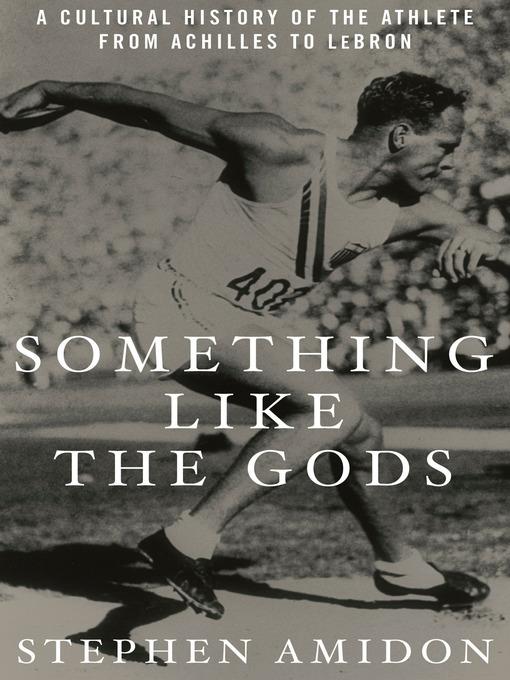
Something Like the Gods
A Cultural History of the Athlete from Achilles to LeBron
کتاب های مرتبط
- اطلاعات
- نقد و بررسی
- دیدگاه کاربران
نقد و بررسی

June 18, 2012
Amidon's examination of the athlete as Western iconâfrom violent warrior in ancient times to trending topic in today's 24/7 entertainment cultureâis erudite and entertaining. Drawing from a vast and diverse range of sources, including literature, film, politics, and history, Amidon (coauthor, The Sublime Engine: A Biography of the Human Heart) effectively argues that the athlete's "power to provoke awe has not diminished" over the millennia. Working forward from historian Gerhard Lukas's assertion that spear throwingâpracticed at least 72,000 years agoâwas the first sport, Amidon traces the engrossing evolution of the athlete. The author shows how the type of deadly combat depicted in Homer's Iliad gave way to the original Greek Olympics in 776 B.C.E., which featured nude male competitors and introduced the concept of the athlete as heroâ"a figure who bridged the gap between the sacred and the secular." Amidon also covers the earliest forms of athletic free agency (as exemplified by the knight errant), the birth of the modern Olympics, "athletic apartheid," the rise of college sports and the female athlete in the late 1800s, the doping era, athletes as brands, and the high moral standard to which today's athletes are often held. Deftly balancing big-picture assessments with particular case studiesâincluding Brandi Chastain and Tiger WoodsâAmidon's treatise will please scholars and spectators alike.

May 15, 2012
A brief but enlightening history of the athlete as a cultural icon. From the shamanistic athletic rituals of Paleolithic hunters to the exploits of today's millionaire sports superstars, athletes have fascinated and transfixed us for centuries. This is true, writes Amidon (co-author: The Sublime Engine: A Biography of the Human Heart, 2011, etc.), for both a universal and a particular reason. At their best, "athlete[s] ha[ve] always been able to transport us out of our daily lives," to stop time for an instant and allow us to suspend disbelief. At the same time, the athlete has always held the ability "to represent the ethos of his era." In rich yet concise prose, Amidon explores this universalist nature of the athlete, including the godlike efforts of the Greek warriors of the ancient Olympics; the tragic heroics of the Roman gladiator; and the romantic image of the jousting knight errant to the civilized amateur ideal of the Victorian era. In his discussion of the modern era, the book's most accomplished section, Amidon emphasizes how class, race and gender worked to initially limit who could become an athlete--working-class competitors, for instance, were explicitly barred from the first modern Olympics--and how those excluded overcame such barriers. Women athletes now hold sway in the public imagination more than they ever have. The black American athlete has moved from being an occasional patriotic icon (Joe Louis) to a political rebel (Muhammad Ali) to a cultural avatar (Michael Jordan). Though he occasionally lapses into questionable comparisons--the early-era baseball player, reflecting the industrialization of work, as a working-class Joe who worked overtime (like everybody else) if a game went into extra innings--Amidon's broad historical sweep fascinates with its facts and challenges with its commentary. A cultural history of sports that says as much about all of us as it does about athletes.
COPYRIGHT(2012) Kirkus Reviews, ALL RIGHTS RESERVED.

























دیدگاه کاربران